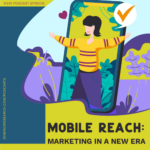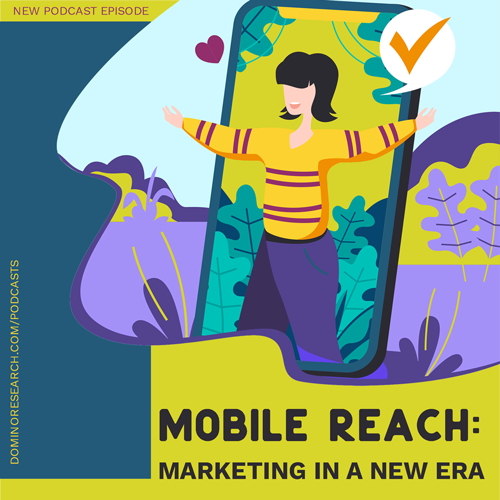
Mobile reach has taken on a new meaning this week.
While we are not quite sure whether we have stumbled into true crazy town at the moment, or if there is still a chance to bring the world back to some semblance of order, one thing we know is for certain. The world has changed, and in a hands off society, mobile reach is going to become the new currency of the realm.
[LISTEN: Our favorite mobile marketing blogs – PODCAST EPISODE]
When we last left you, dear listeners, two weeks ago, we were already talking about the all the great moves towards mobile marketing, advertising and technology that had been talked about at the Big Show (the yearly NRF trade show, the big one!) as the way forward this year, but then, well… coronavirus hit.
We’re not doctors, or scientists, and at the moment we’re not even thinking about staying at the Holiday Inn Express. But what we do know is mobile and we understand how to translate personalized marketing and advertising into actionable, yet hands free #distancemarketing (yes, new hashtag, for sure going to be big!)
This entire scenario has us both in shock, and frankly more than a little nervous. We want to see everyone come out of this better than they were going into it; the likelihood of that happening is probably about equal to waking up and the whole thing being like that season of Dallas, where nobody shot JR and the whole thing was just a bad dream.
Sometimes you gotta just put one foot in the front of the other.
If you run a small business, whether it’s brick and mortar, online, or some combination of the two, then you are already on slim profit margins and you probably don’t get to eat until your employees are fed. This is the typical entrepreneur setup, and we recognize that. We also know that opportunities for lead generation are going to get tougher, there will be more noise in the world, and that every penny is going to count, much more than it did last month, or even last week.
What does all of this mean? We have been thinking and talking for two weeks now about the situation, and we’ve seen it firsthand in three different countries (China, Iran, S Korea, not being among them) and we don’t think it’s impossible to keep working and getting organized for the new way of handling things, which is certainly going to involve a lot of mobile reach and outreach. Listen in and see what you think.
Do you understand what the term “mobile reach” means?
Mobile devices have revolutionized the way businesses interact with customers and potential customers. Gone are the days of relying solely on traditional marketing channels like billboards or newspaper ads. Today, smartphones and tablets reign supreme, offering an unprecedented level of reach and engagement for marketers.
This dominance is fueled by several factors.
Firstly, mobile device ownership is staggering. Billions of people globally carry smartphones in their pockets, practically glued to a constant stream of information and entertainment. This presents a massive audience for marketers to target with laser precision.
Secondly, mobile devices offer unparalleled access to user data. Location services, browsing history, and app usage can all be used (with user consent, of course) to create highly targeted marketing campaigns. Imagine sending discount notifications for a nearby store to a potential customer browsing travel shoes online. This level of personalization fosters stronger brand connections and conversions.
Mobile marketing goes beyond just ads. Brands can leverage apps to build direct relationships with customers, providing loyalty programs, personalized recommendations, and real-time communication channels. Push notifications can deliver instant updates and promotions, keeping customers engaged and informed.
However, with great reach comes great responsibility.
Intrusive marketing tactics can backfire, so creating relevant and valuable content for mobile users is crucial. Marketers must also navigate privacy concerns and ensure user data is collected and used ethically.
Overall, the reach of mobile devices has transformed marketing into a dynamic, data-driven field. By harnessing the power of mobile technology, businesses can connect with customers on a deeper level, fostering brand loyalty and driving sales in a constantly connected world.

